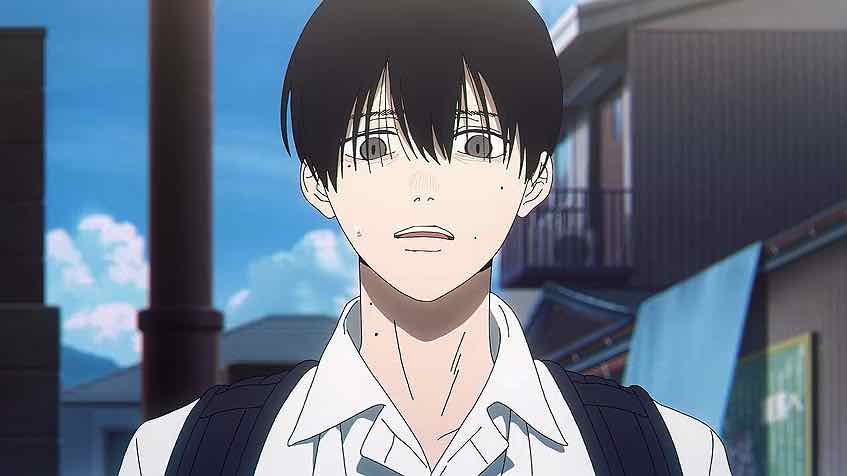 I would have described my feeling going into this adaptation as “cautious optimism”. I knew the manga was exceptional (though not flawless). There were things that niggled at me, like the character designs looking a bit too pretty in the previews, the lack of an established elite director, and the mixed – and limited – track record of CygamesPictures. But honestly, I’m hard-pressed to fault anything about it. The characters are fine – just as awkward and out of proportion as boys this age often are. Cygames proved their mettle with Apocalypse Hotel, and the whole adaptation has been handled with plenty of intelligence and aesthetic ambition. It’s just on-point.
I would have described my feeling going into this adaptation as “cautious optimism”. I knew the manga was exceptional (though not flawless). There were things that niggled at me, like the character designs looking a bit too pretty in the previews, the lack of an established elite director, and the mixed – and limited – track record of CygamesPictures. But honestly, I’m hard-pressed to fault anything about it. The characters are fine – just as awkward and out of proportion as boys this age often are. Cygames proved their mettle with Apocalypse Hotel, and the whole adaptation has been handled with plenty of intelligence and aesthetic ambition. It’s just on-point.
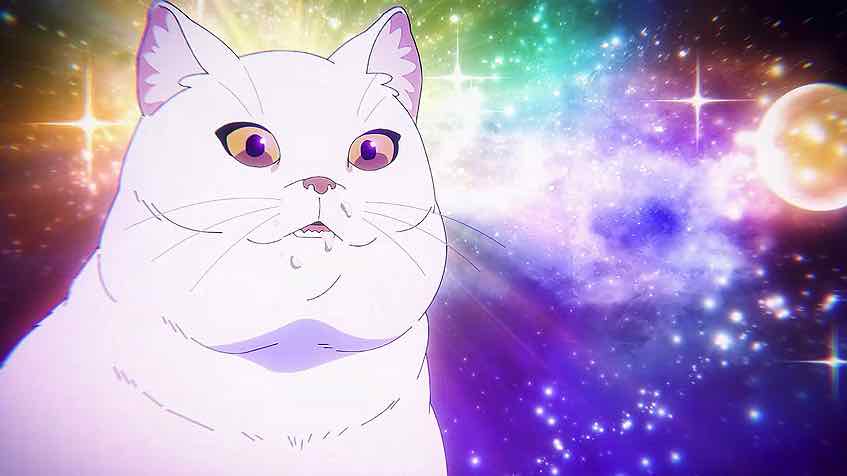 World-building is essential to any story of this type. For me at least the sense of immersion is if anything even stronger in the anime version, largely thanks to the impeccable sound design. We have two things happening simultaneously here – Yoshiki’s emotional crisis and a larger supernatural mystery. Hikaru obviously is the link between them, but where Hikaru ga Shinda Natsu is really brilliant is in treating him as an individual first. Even if we – and Yoshiki – don’t know exactly what Hikaru is, we recognize the emotions he feels. He knows he’s wrong. He knows the outsized role Hikaru played in Yoshiki’s life, and how that’s been passed to him in twisted form. And like any adolescent, he’s struggling with how to cope with his place in the world.
World-building is essential to any story of this type. For me at least the sense of immersion is if anything even stronger in the anime version, largely thanks to the impeccable sound design. We have two things happening simultaneously here – Yoshiki’s emotional crisis and a larger supernatural mystery. Hikaru obviously is the link between them, but where Hikaru ga Shinda Natsu is really brilliant is in treating him as an individual first. Even if we – and Yoshiki – don’t know exactly what Hikaru is, we recognize the emotions he feels. He knows he’s wrong. He knows the outsized role Hikaru played in Yoshiki’s life, and how that’s been passed to him in twisted form. And like any adolescent, he’s struggling with how to cope with his place in the world.
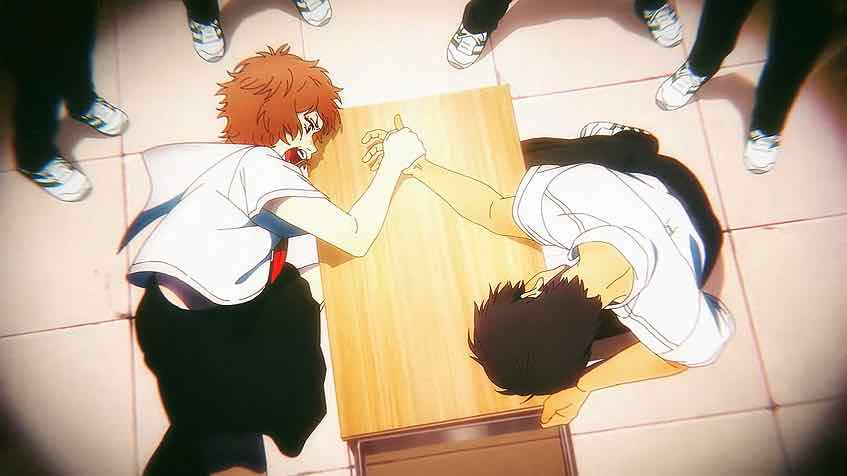 Hikar2 referring to himself as “clueless” reflects a decent amount of self-awareness. Asako telling Yuki not to cross the train tracks because of “intuition” – and Yuki unprotestingly agreeing – reflects the same. These people are aware that things are weird in this village, but they accept it as part and parcel of their lives. It’s Kurebayashi-san who seems to have elevated her self-awareness to another level. She sees the wrongness in things – and in her ability to see that wrongness. She accepts who she is, but not that that status quo is inevitable and acceptable.
Hikar2 referring to himself as “clueless” reflects a decent amount of self-awareness. Asako telling Yuki not to cross the train tracks because of “intuition” – and Yuki unprotestingly agreeing – reflects the same. These people are aware that things are weird in this village, but they accept it as part and parcel of their lives. It’s Kurebayashi-san who seems to have elevated her self-awareness to another level. She sees the wrongness in things – and in her ability to see that wrongness. She accepts who she is, but not that that status quo is inevitable and acceptable.
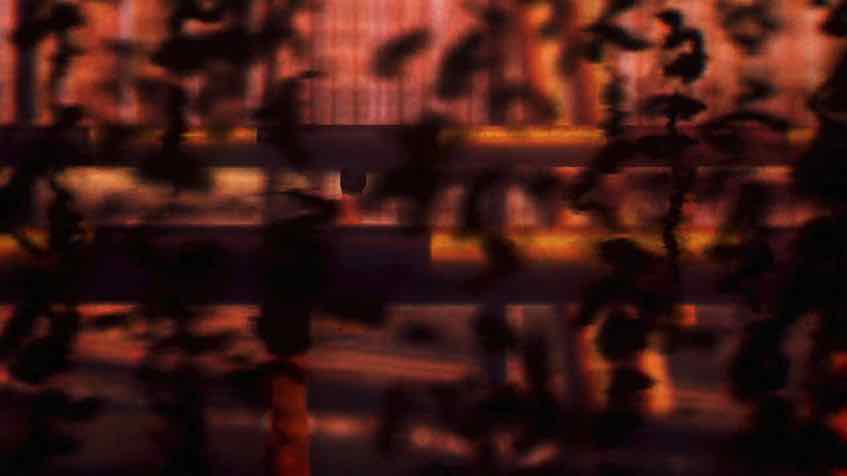 Notably, Tanaka-san is the only person from outside the village to play a significant (any?) role in the story so far. The elders remind him that Kubitachi has been linked to the thing from the mountain for 300 years, even as they blame the Indou family for the current crisis. As the town holds its summer festival Tanaka (via his hamster) gets a signal that something has damaged the barrier he put up around the shrine. When the elders ask him why he can’t put a barrier up around the whole village, he says he has to surrender an organ every time he erects a barrier. That would obviously pose a problem in the long-term.
Notably, Tanaka-san is the only person from outside the village to play a significant (any?) role in the story so far. The elders remind him that Kubitachi has been linked to the thing from the mountain for 300 years, even as they blame the Indou family for the current crisis. As the town holds its summer festival Tanaka (via his hamster) gets a signal that something has damaged the barrier he put up around the shrine. When the elders ask him why he can’t put a barrier up around the whole village, he says he has to surrender an organ every time he erects a barrier. That would obviously pose a problem in the long-term.
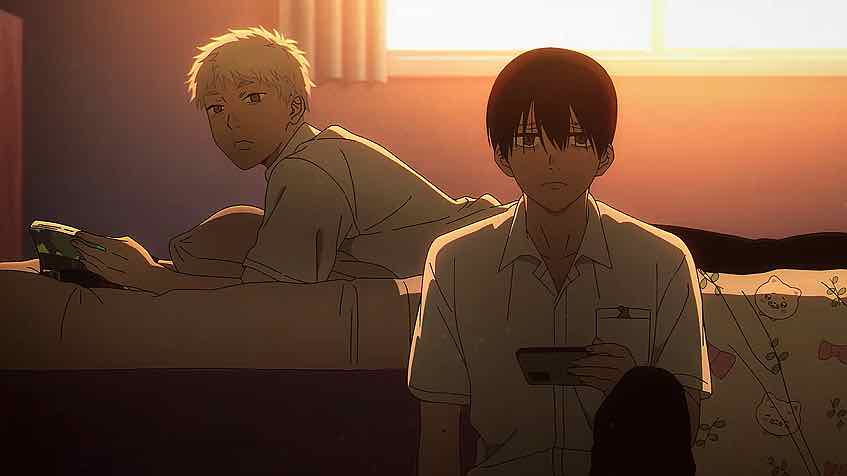 Yoshiki’s sister Kaoru (Hirose Seika) isn’t going to school for some reason. This causes tongues to wag in the village, which pisses Yoshiki off. Through a flashback we see the oppressive nature of the place has grated on him for a long time – in middle school he seems to have complained about it to Hikaru, referencing a local boy who’s also the target of gossip and whispering. Why? Because he’s a homosexual – which the human Hikaru responds to with a surprised “LGBT stuff?”. Hikaru may not fully understand the reasons why Yoshiki finds the place so stifling and longs to escape to the city, but he does grasp his own importance in giving Yoshiki something to cling to as he tries to cope.
Yoshiki’s sister Kaoru (Hirose Seika) isn’t going to school for some reason. This causes tongues to wag in the village, which pisses Yoshiki off. Through a flashback we see the oppressive nature of the place has grated on him for a long time – in middle school he seems to have complained about it to Hikaru, referencing a local boy who’s also the target of gossip and whispering. Why? Because he’s a homosexual – which the human Hikaru responds to with a surprised “LGBT stuff?”. Hikaru may not fully understand the reasons why Yoshiki finds the place so stifling and longs to escape to the city, but he does grasp his own importance in giving Yoshiki something to cling to as he tries to cope.
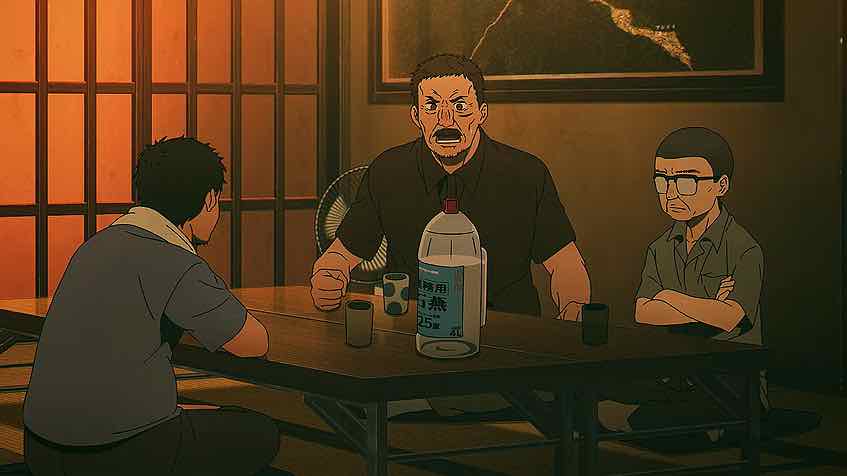 The crises Yoshiki and Hikaru are dealing with provide the anchor for everything else that happens. The last thoughts of Hikaru (who seems to have slipped after being distracted by the boob tree) were of Yoshiki and not wanting him to be alone. As such it’s not surprising that Hikar2 is so fixated on Yoshiki itself. Yoshiki bears the weight of awareness – he knows this Hikaru is not the boy he grew up with. But he can’r bear the notion of facing a world without that boy in it. In a sense he feels unfaithful to Hikaru’s memory by acting like Hikar2 is his best friend. But the alternative is even more unthinkable.
The crises Yoshiki and Hikaru are dealing with provide the anchor for everything else that happens. The last thoughts of Hikaru (who seems to have slipped after being distracted by the boob tree) were of Yoshiki and not wanting him to be alone. As such it’s not surprising that Hikar2 is so fixated on Yoshiki itself. Yoshiki bears the weight of awareness – he knows this Hikaru is not the boy he grew up with. But he can’r bear the notion of facing a world without that boy in it. In a sense he feels unfaithful to Hikaru’s memory by acting like Hikar2 is his best friend. But the alternative is even more unthinkable.
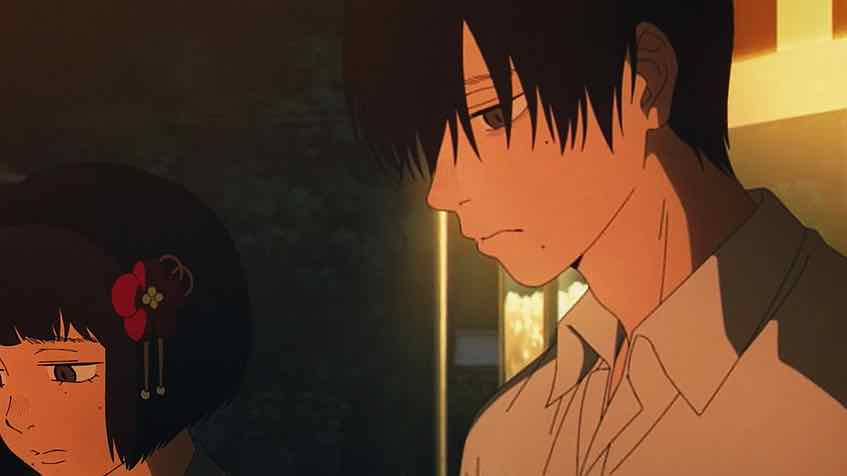 It’s a truly fascinating tangle, to be sure. Yoshiki seems to be more open with Hikar2 specifically because it’s not Hikaru. You get the idea he tells it things he would never have shared with the real boy, and Hikar2 doesn’t have the same reflexive unease at sharing his feelings than a human teenaged boy would have. The world is a massive place – universe, galaxy, solar system, planet. But life in a place like Kubitachi feels very small indeed, and Yoshiki’s world feels ever smaller to him – confined to his field of vision and emotions. Mostly we see The Summer Hikaru Died through his eyes, with the occasional panoramic shot to remind us just how confining that view is.
It’s a truly fascinating tangle, to be sure. Yoshiki seems to be more open with Hikar2 specifically because it’s not Hikaru. You get the idea he tells it things he would never have shared with the real boy, and Hikar2 doesn’t have the same reflexive unease at sharing his feelings than a human teenaged boy would have. The world is a massive place – universe, galaxy, solar system, planet. But life in a place like Kubitachi feels very small indeed, and Yoshiki’s world feels ever smaller to him – confined to his field of vision and emotions. Mostly we see The Summer Hikaru Died through his eyes, with the occasional panoramic shot to remind us just how confining that view is.


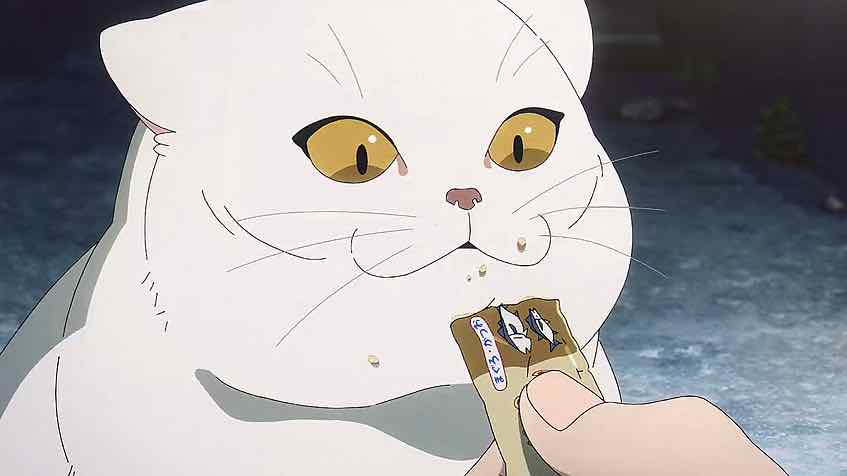
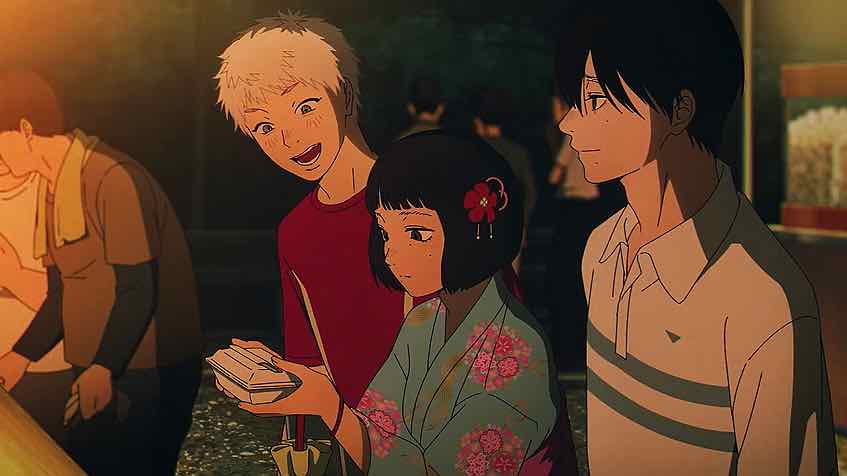
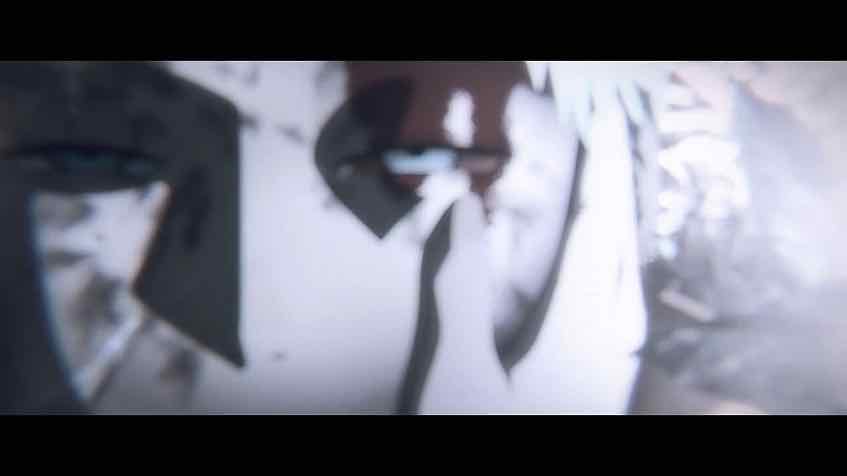
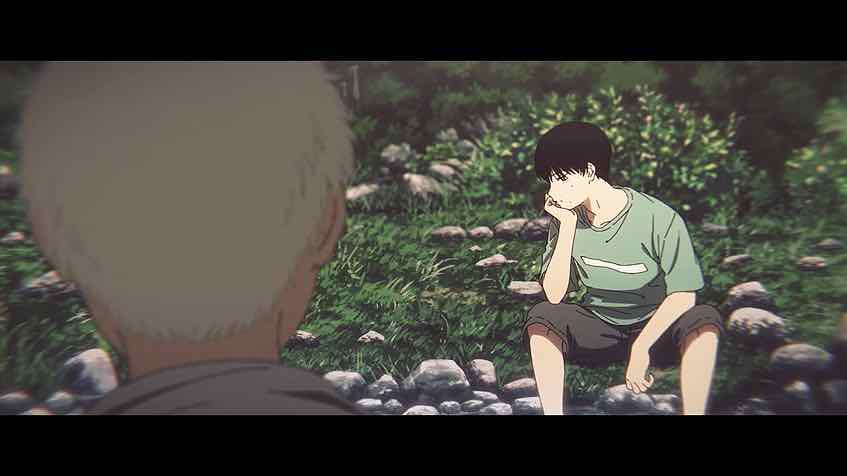
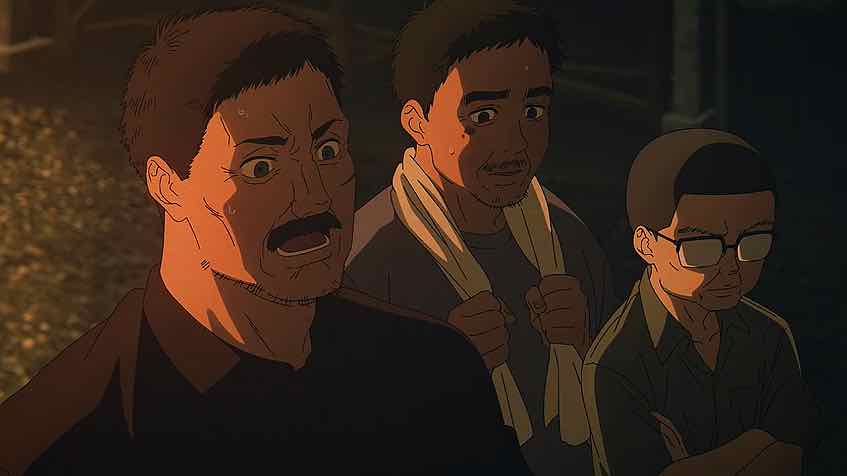
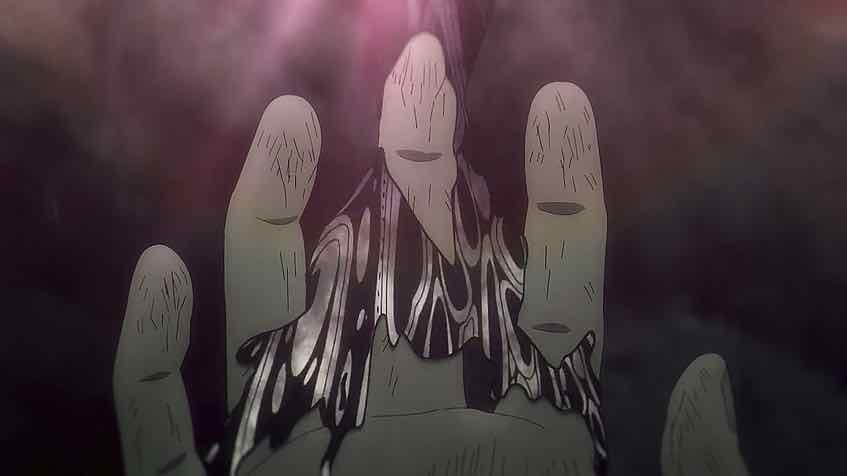
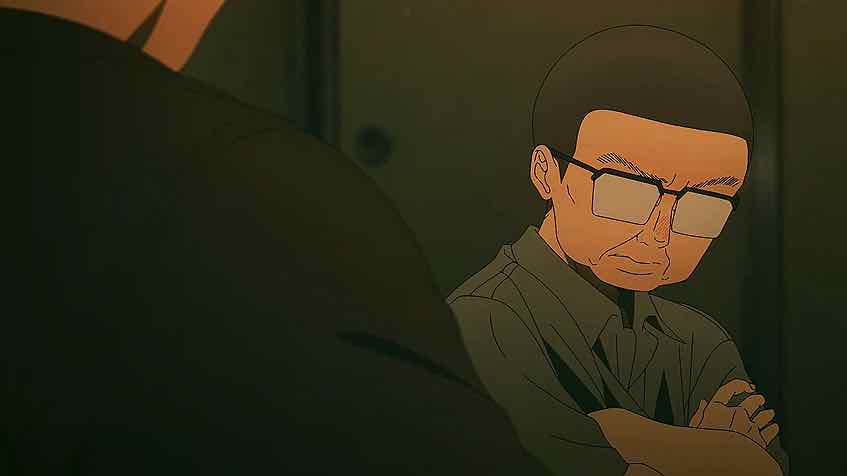
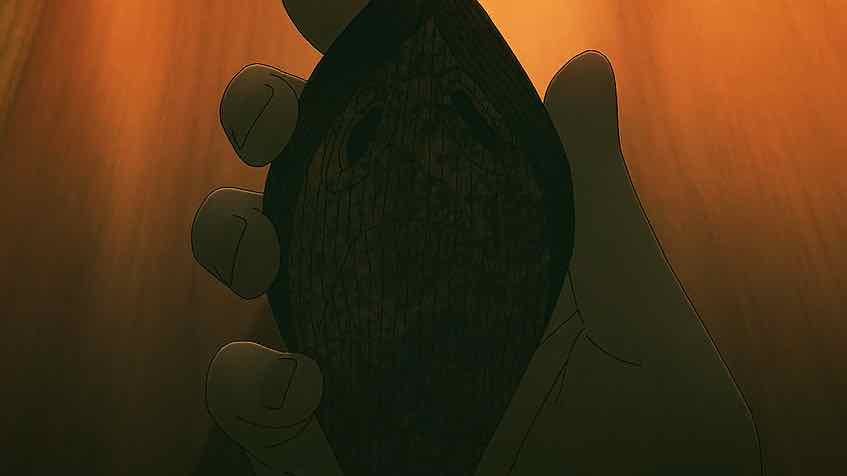
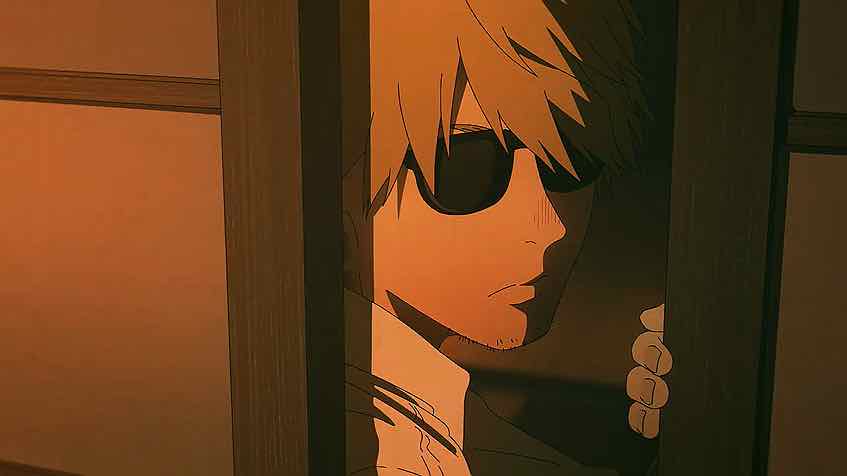
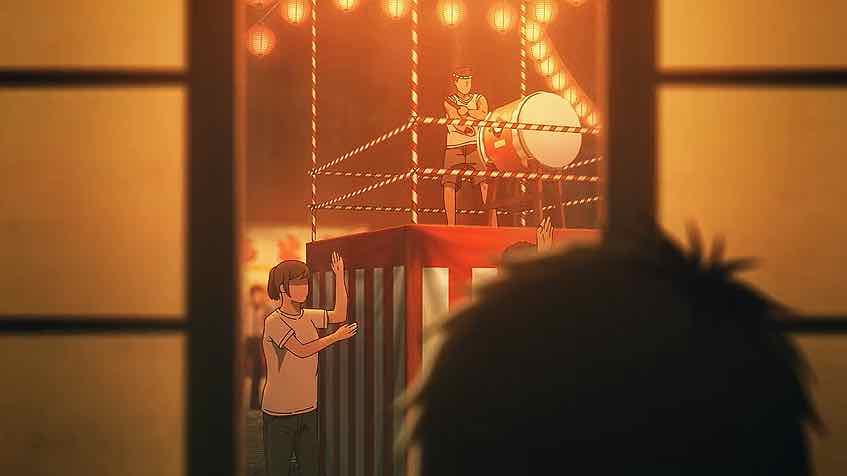
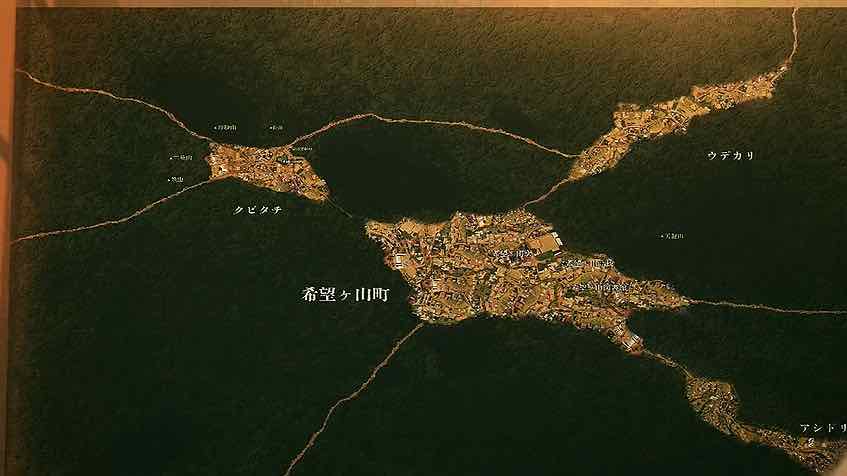
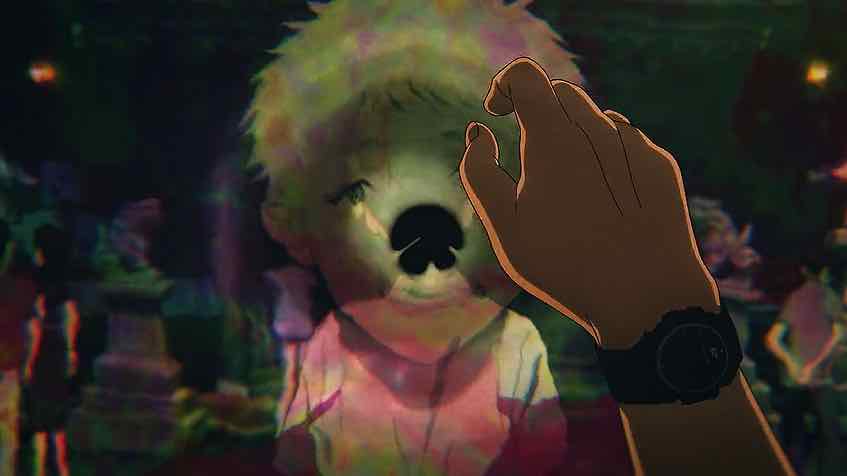
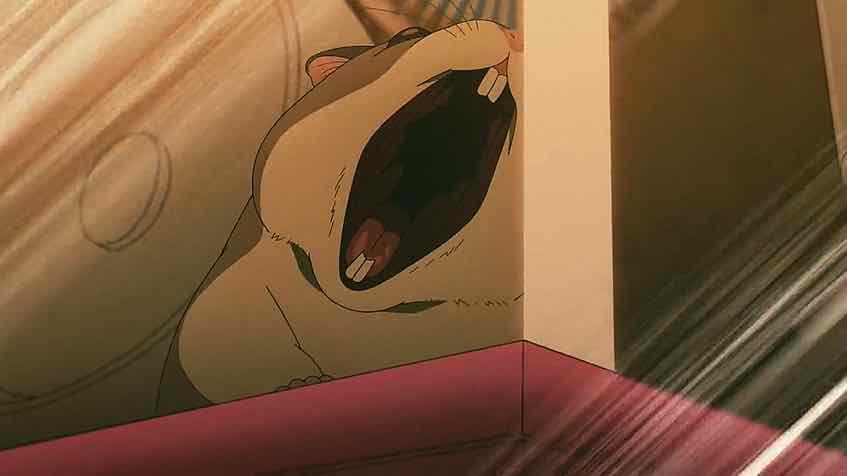
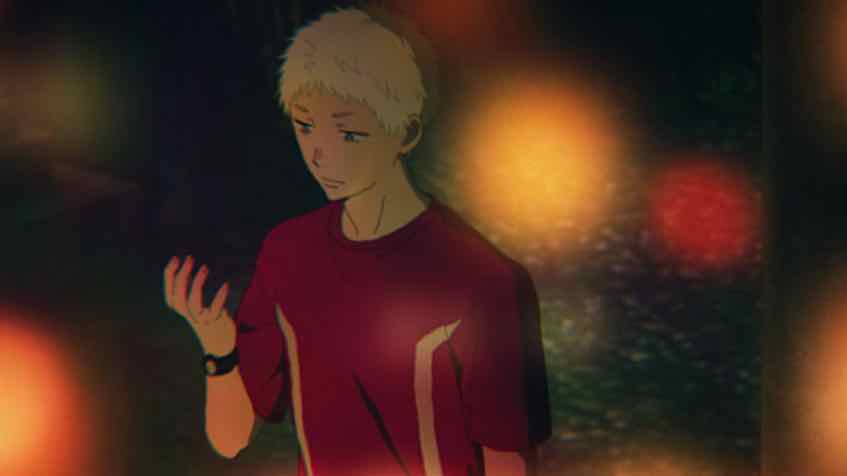
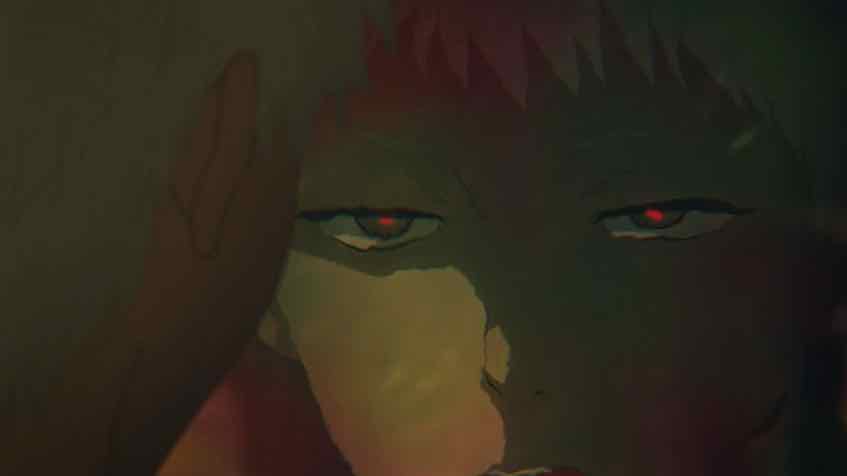
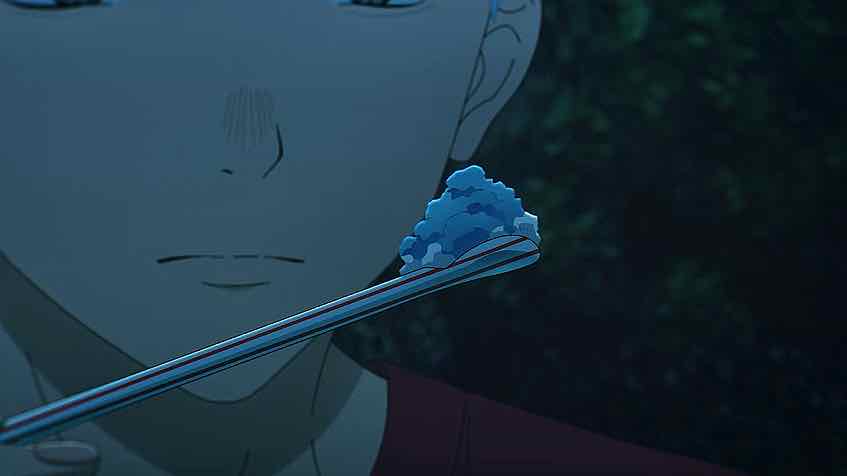
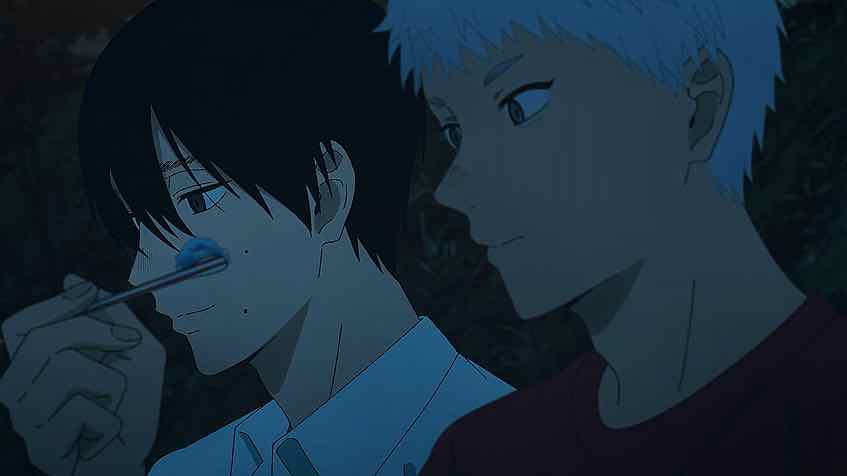
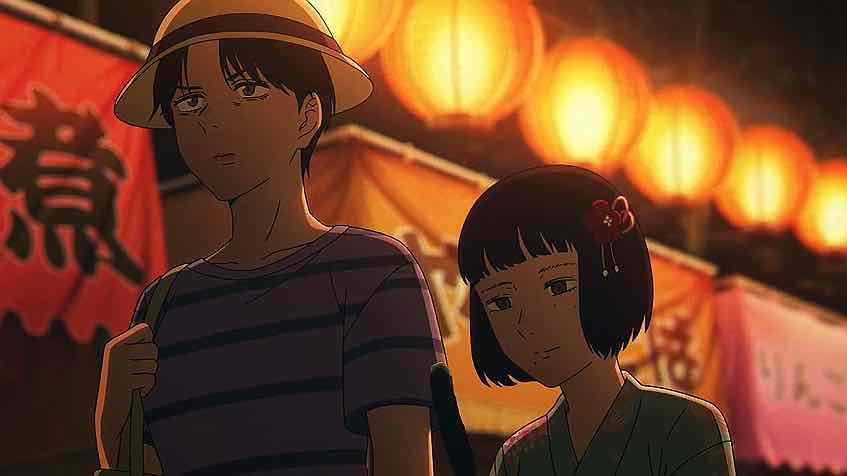
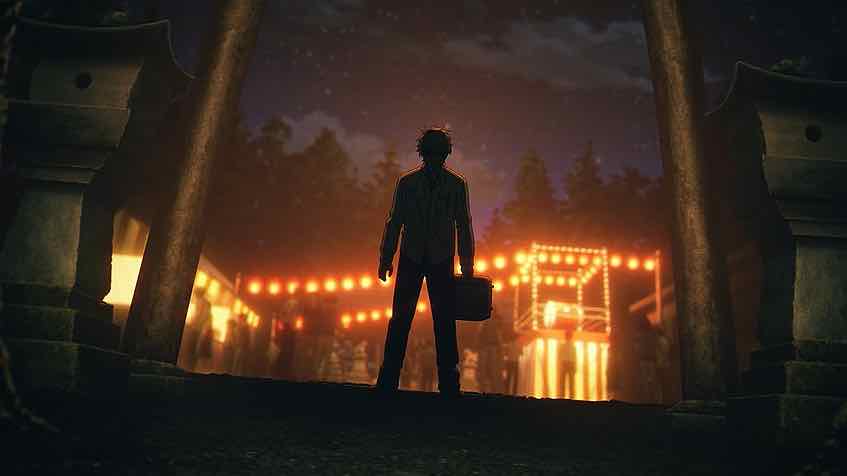
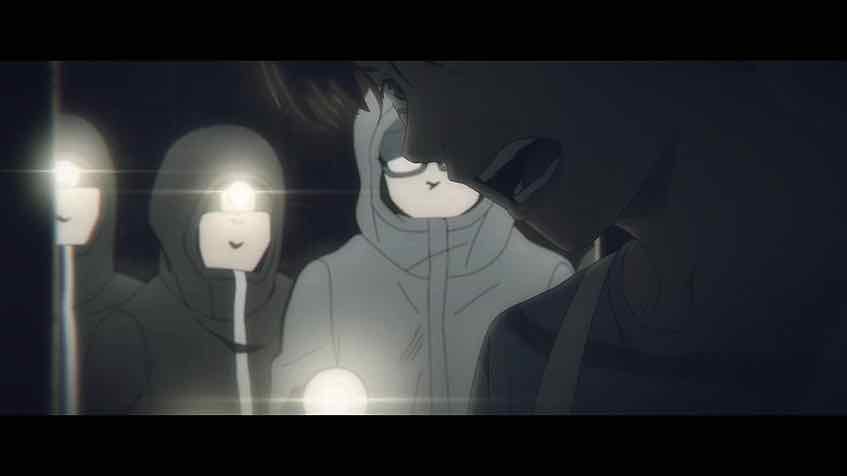
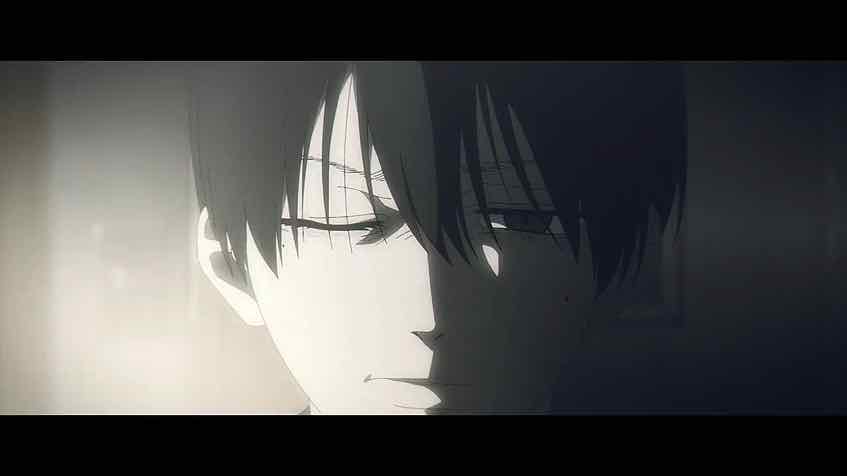
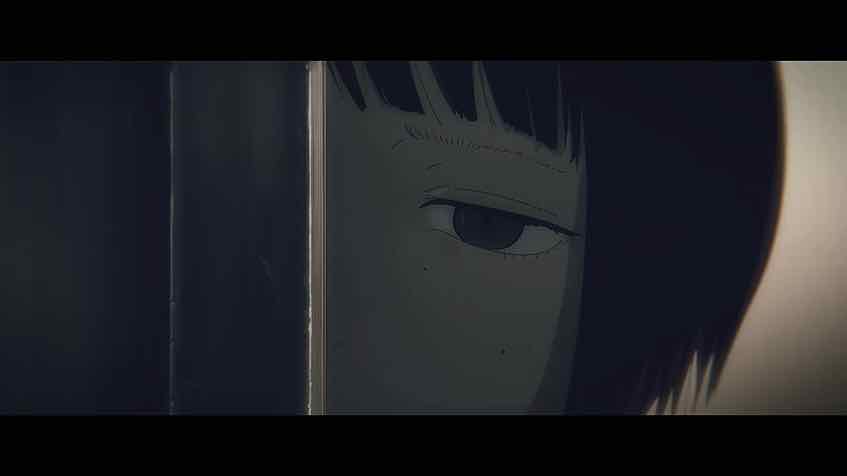
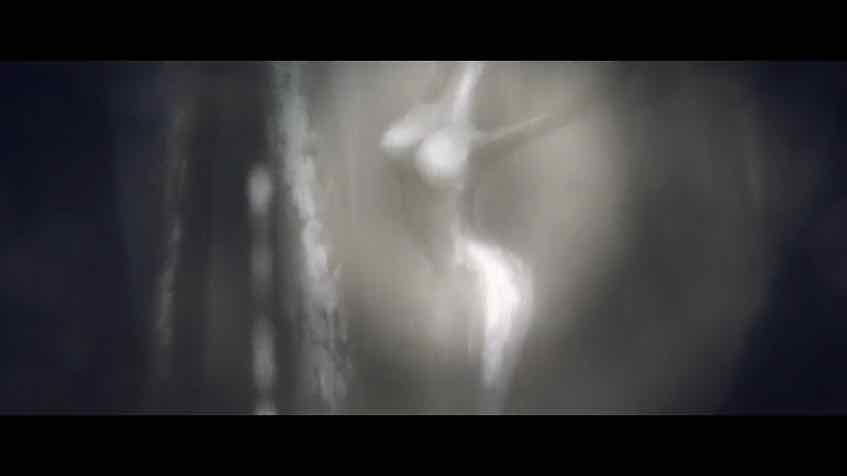
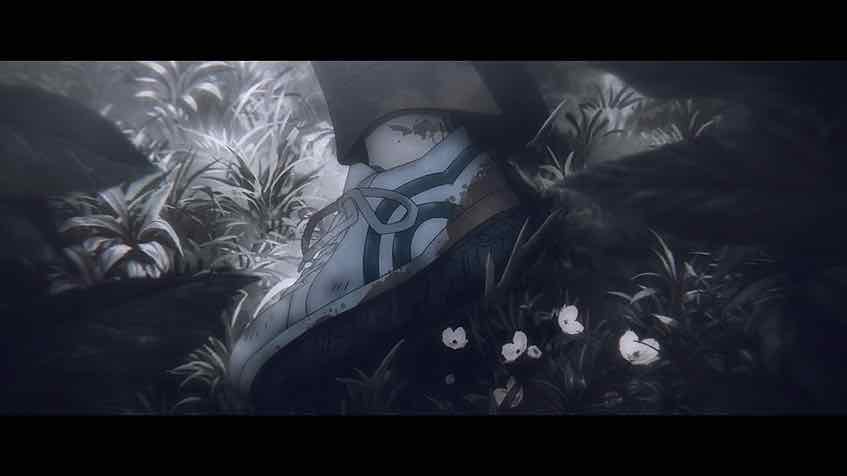
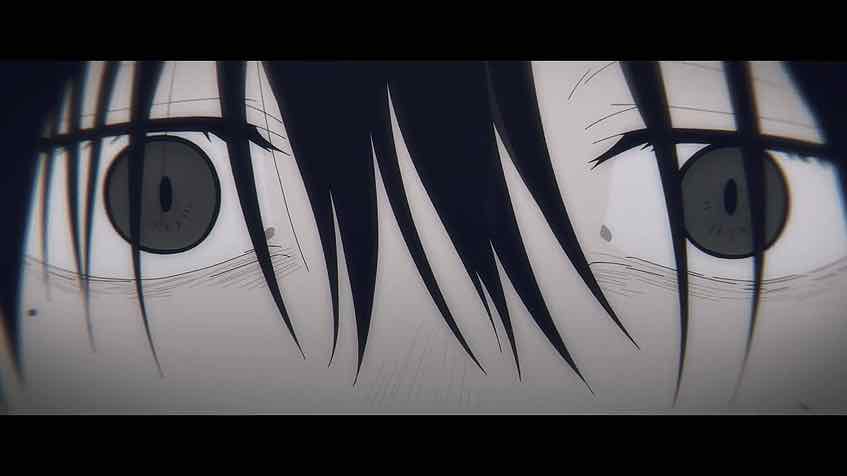
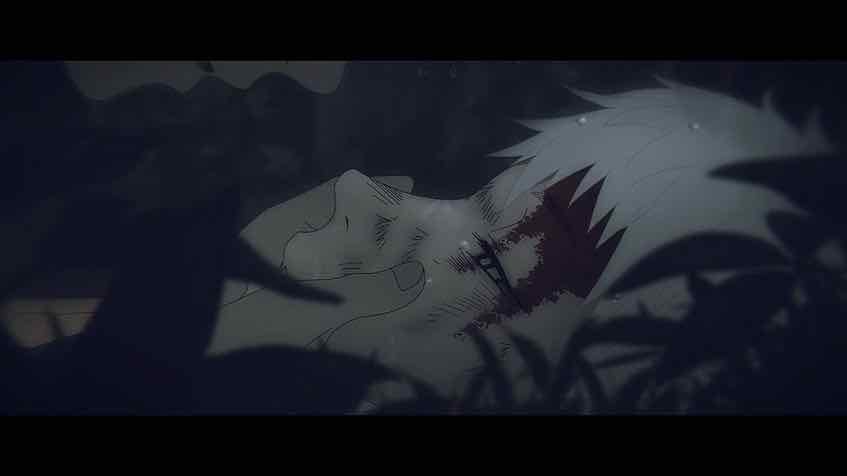
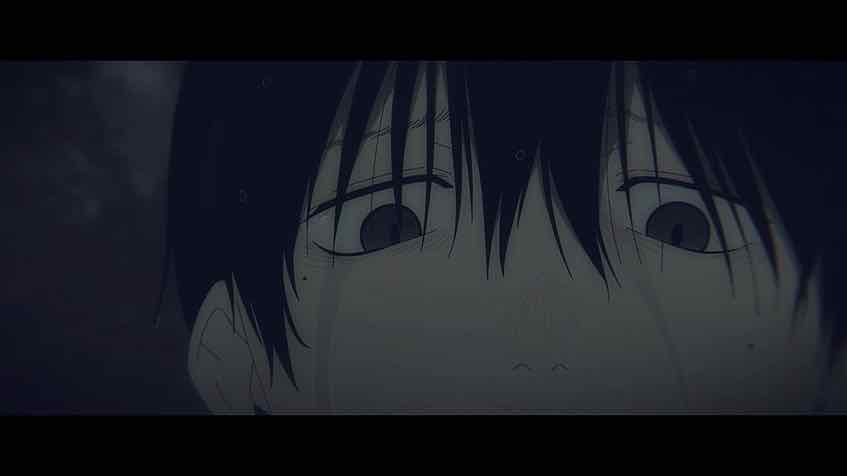
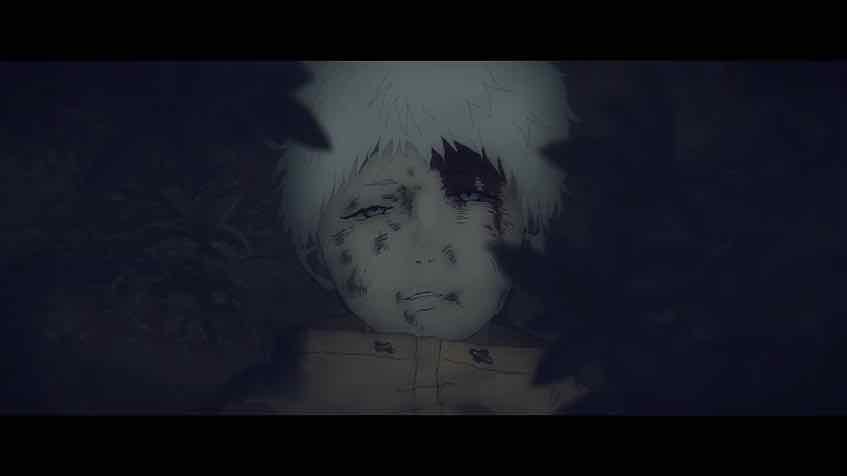
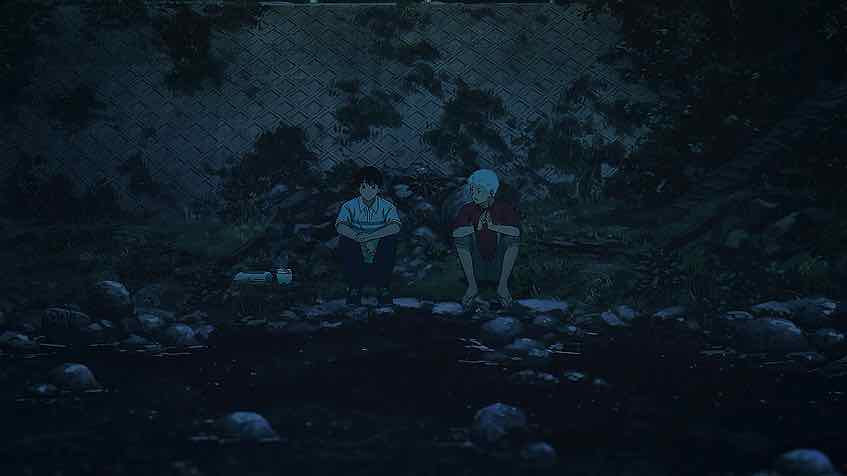
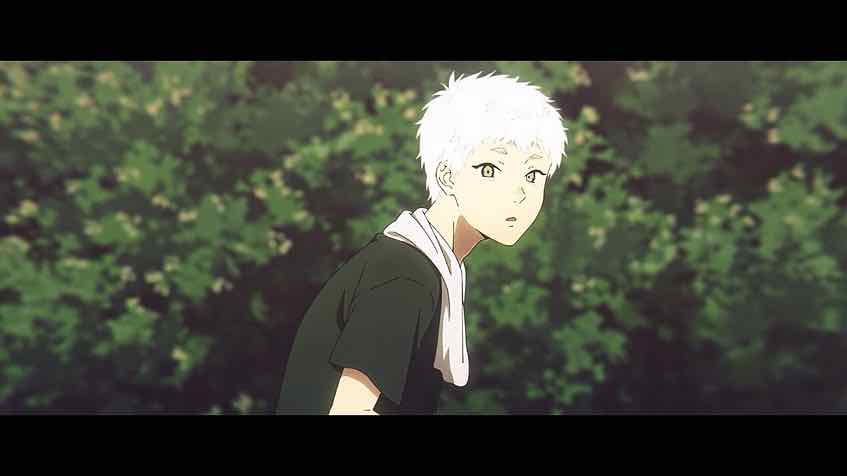
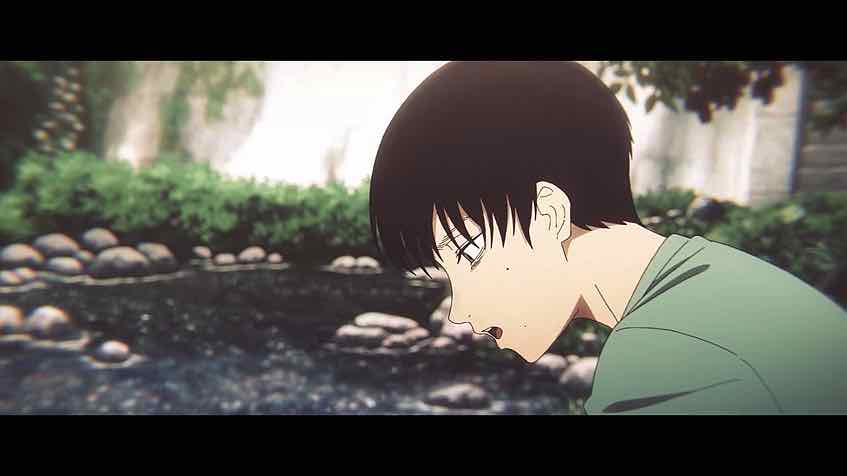
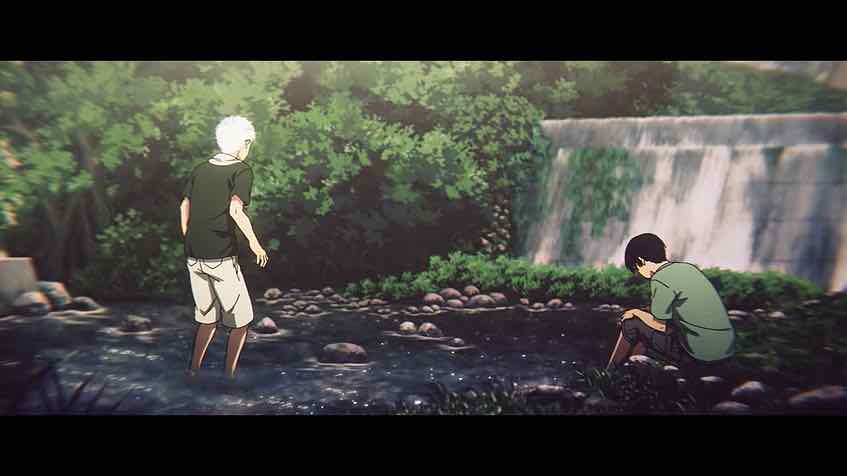
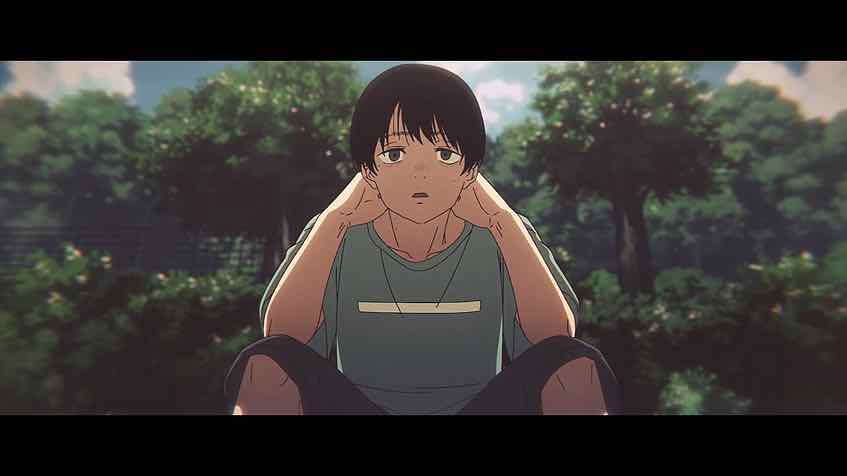
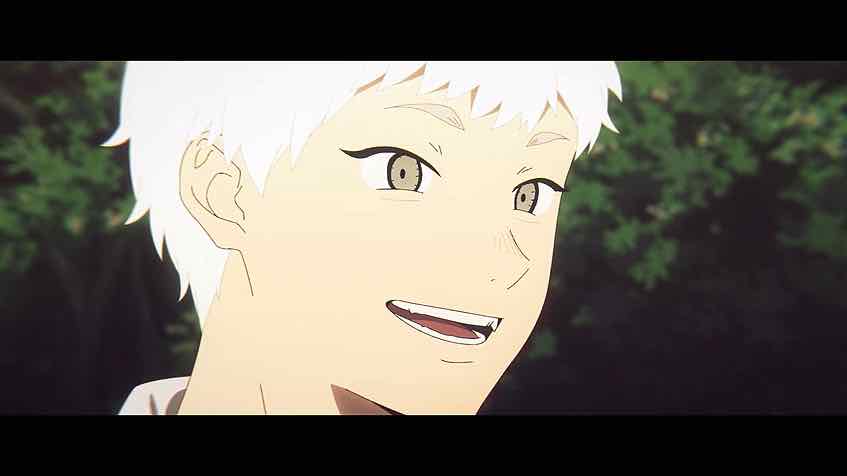
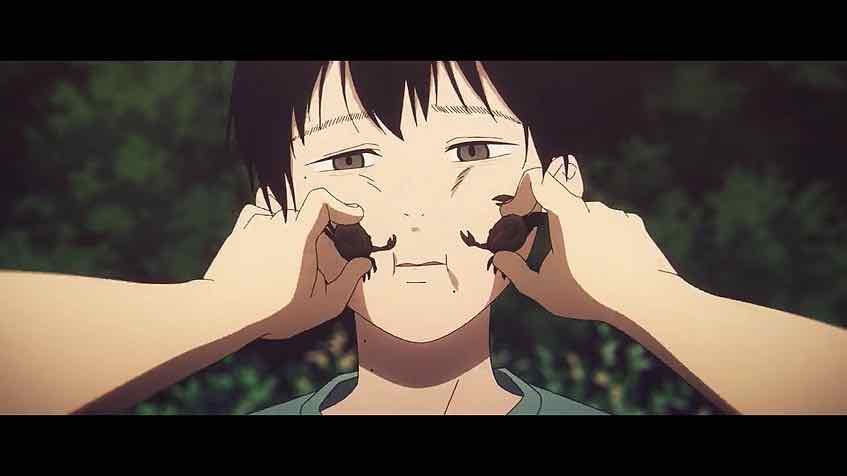
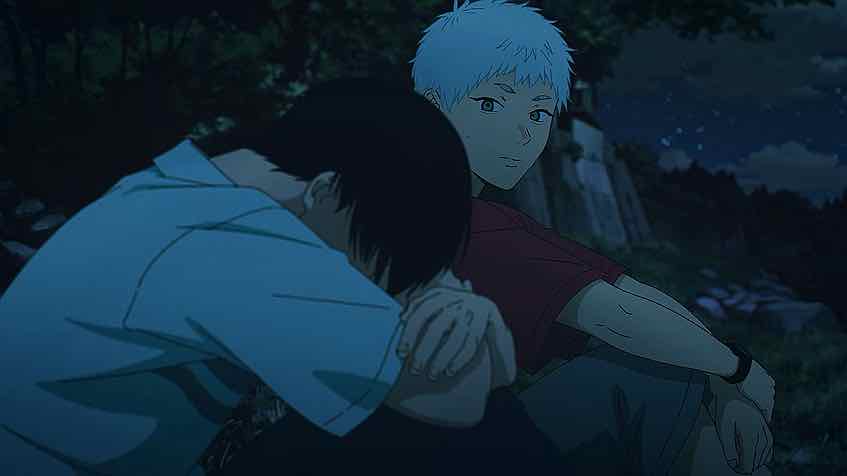
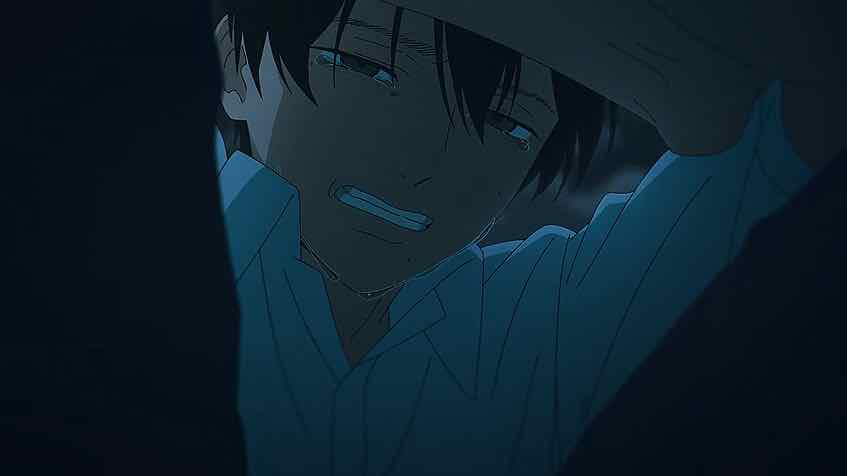
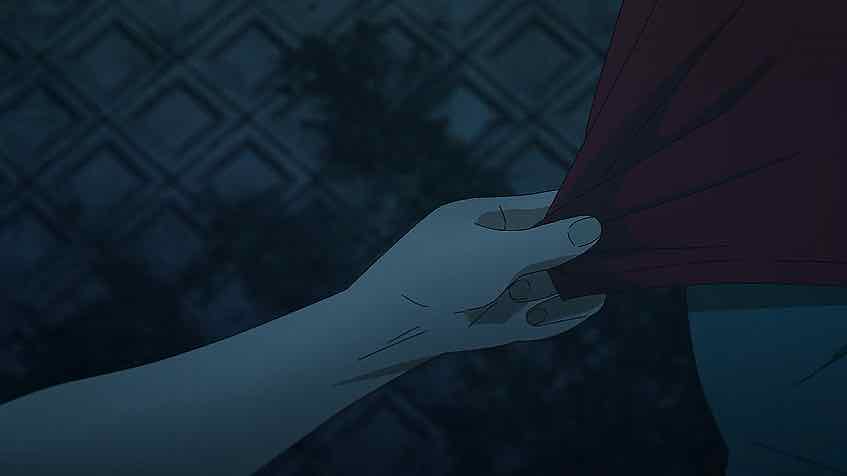
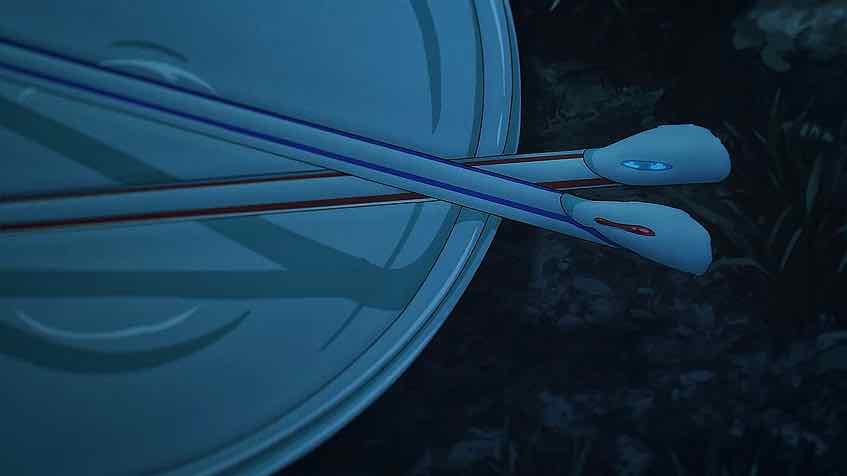
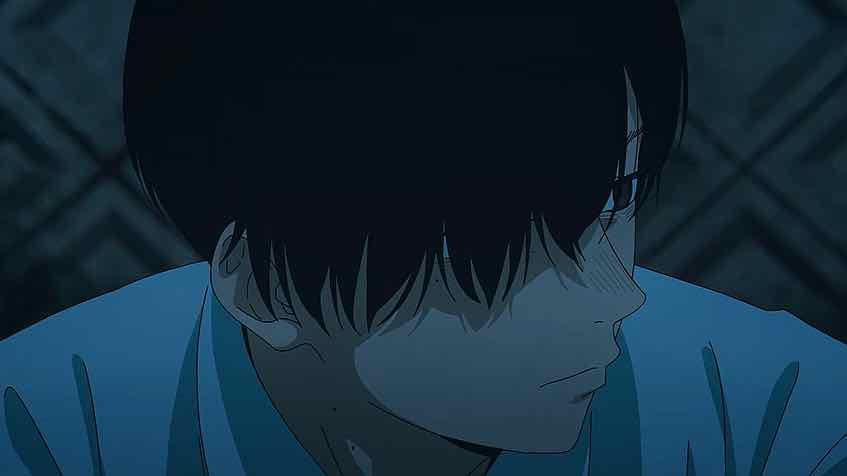
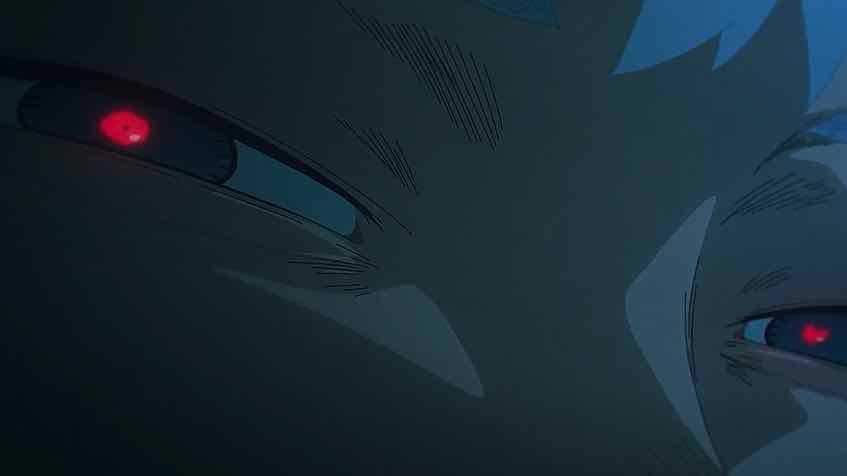
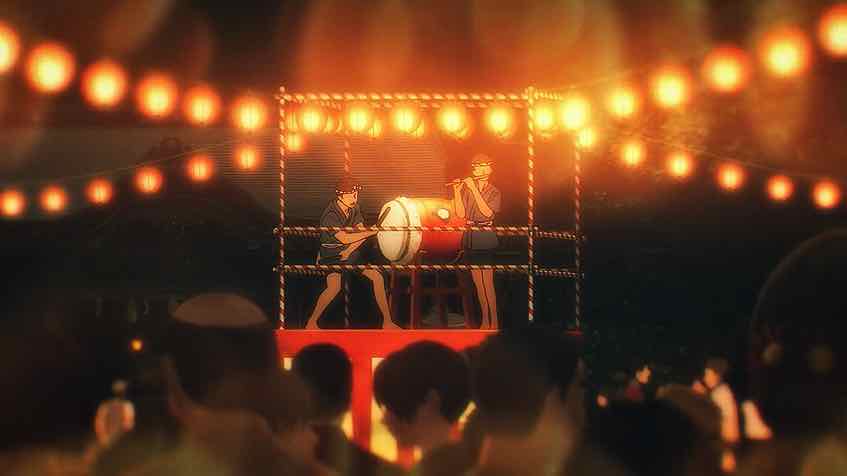
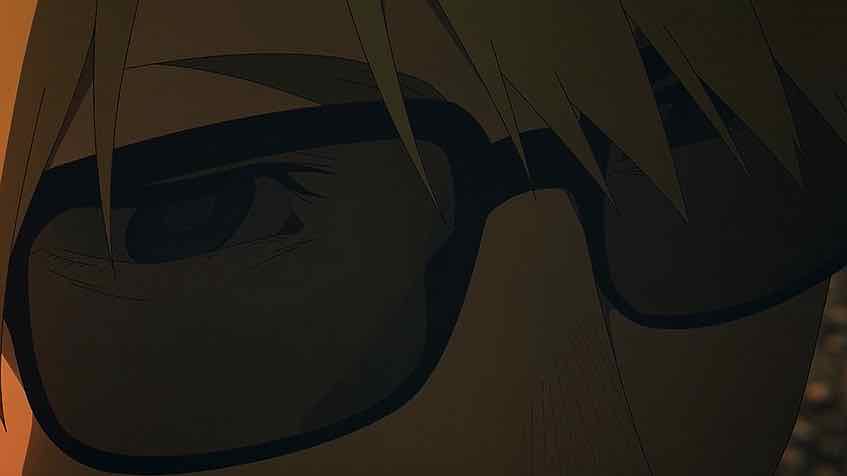
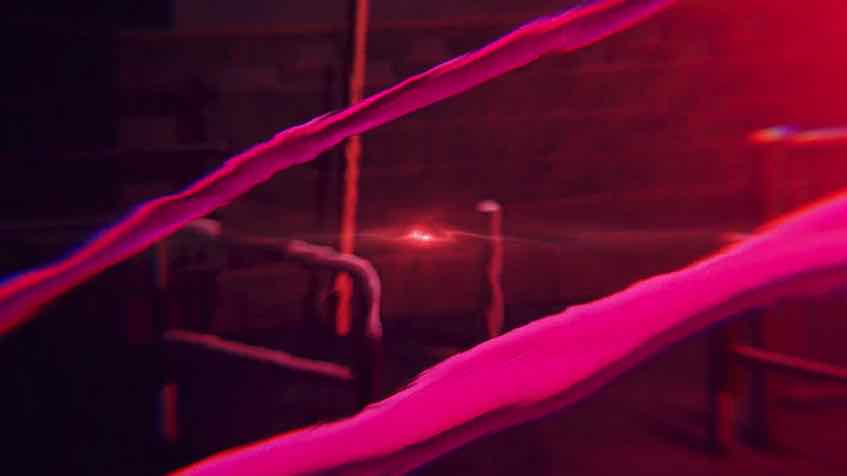
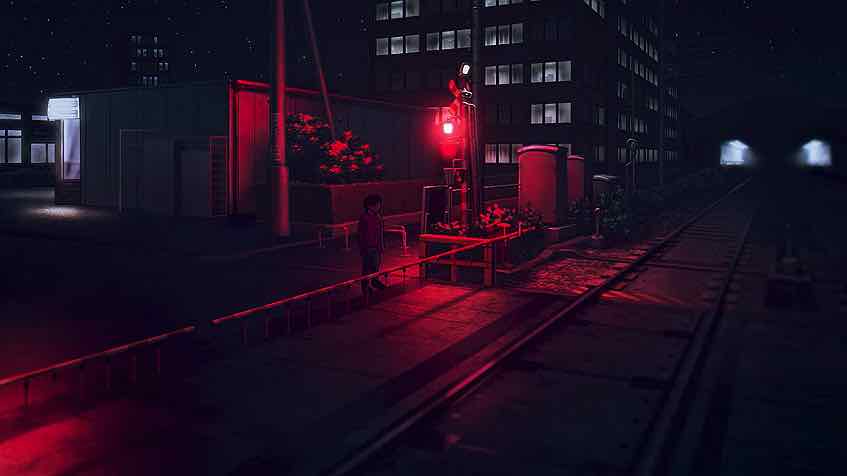
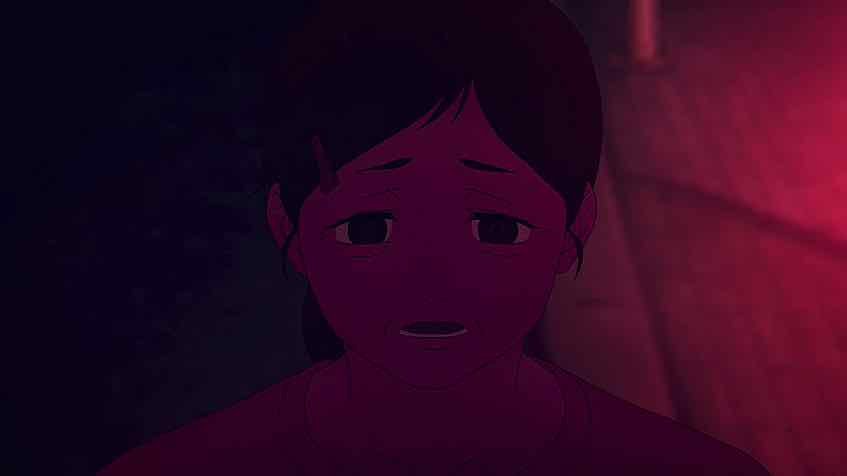
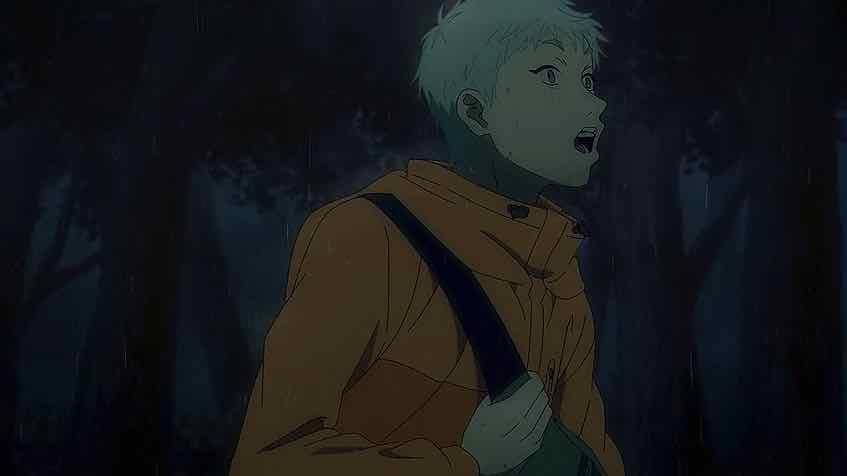
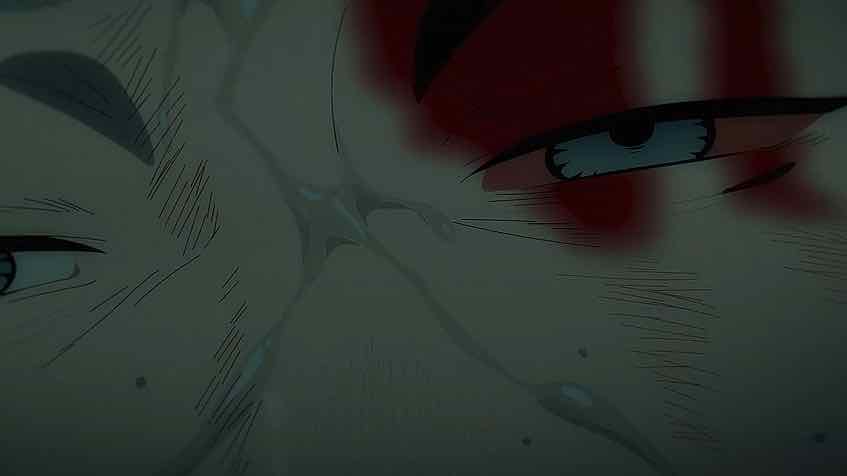
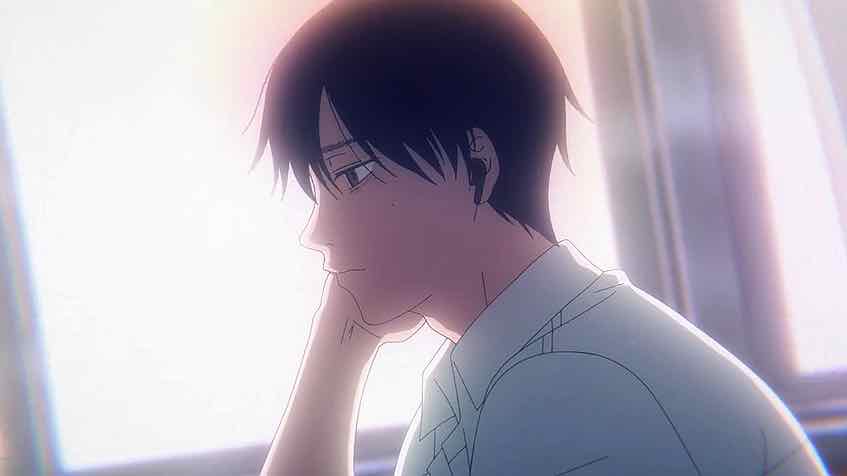
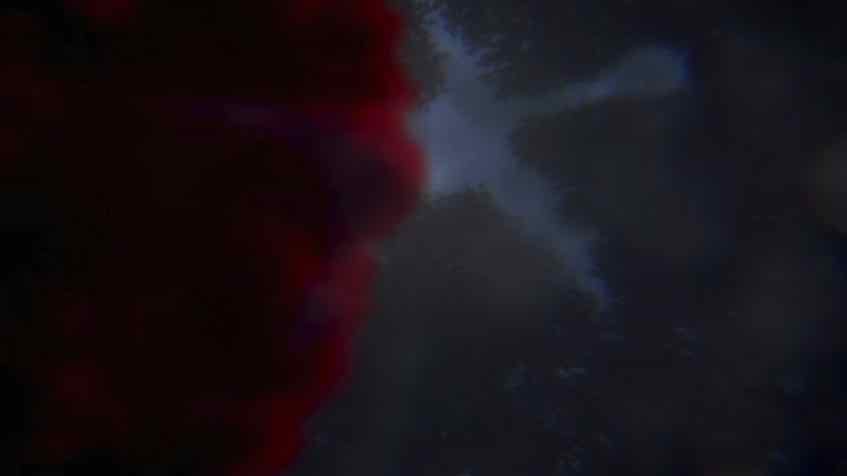
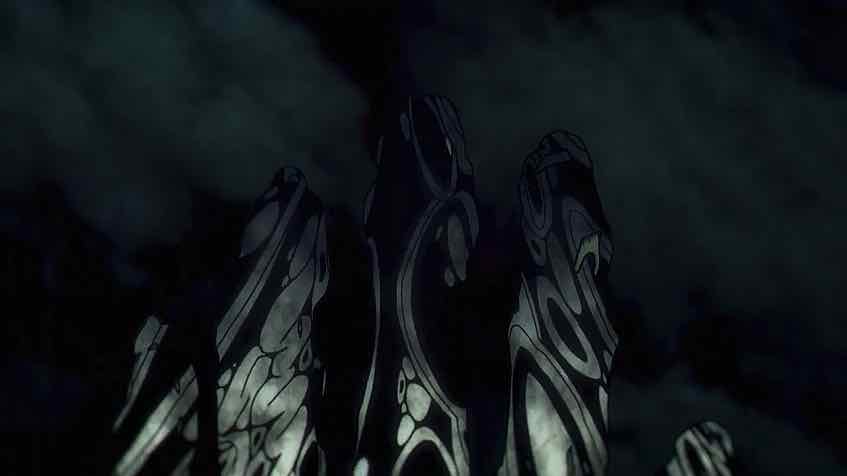
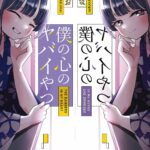
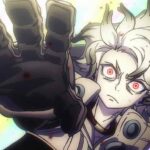
Nadavu
July 27, 2025 at 1:41 pmYoshiki’s field of vision is even further restricted by his bangs.
This was the first episode where I felt I’m starting to “get” Hikaru ga Shinda Natsu.